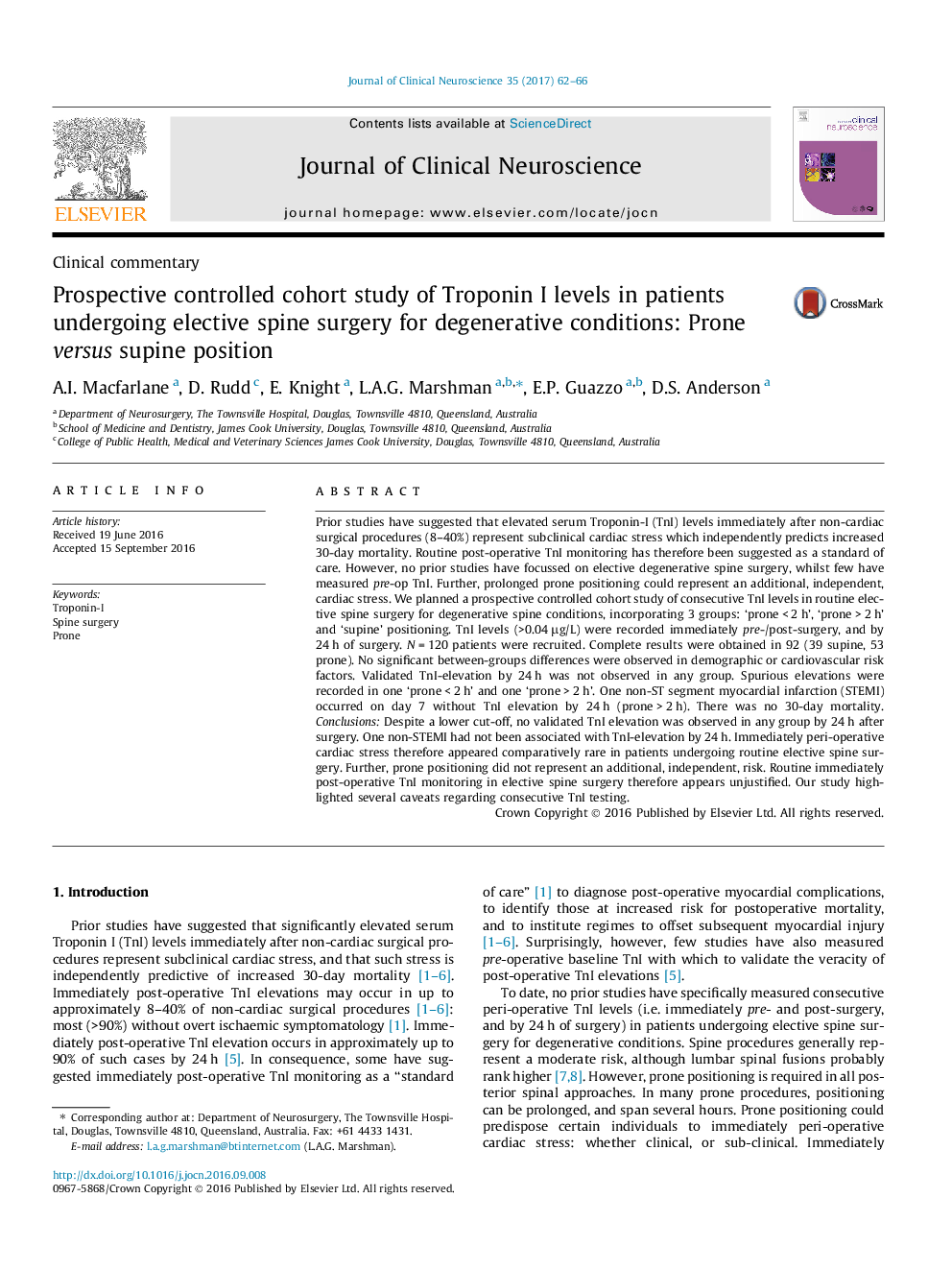| کد مقاله | کد نشریه | سال انتشار | مقاله انگلیسی | نسخه تمام متن |
|---|---|---|---|---|
| 5630069 | 1580281 | 2017 | 5 صفحه PDF | دانلود رایگان |

- Early TnI levels after non-cardiac surgery represent subclinical cardiac stress.
- Prolonged prone positioning is a potential additional, independent, cardiac stress.
- Routine post-operative TnI monitoring has been suggested as a “standard of care”.
- Prospective cohort study of elective spine surgery: prone versus supine.
- No genuine TnI elevation either group: routine TnI monitoring is not justified.
Prior studies have suggested that elevated serum Troponin-I (TnI) levels immediately after non-cardiac surgical procedures (8-40%) represent subclinical cardiac stress which independently predicts increased 30-day mortality. Routine post-operative TnI monitoring has therefore been suggested as a standard of care. However, no prior studies have focussed on elective degenerative spine surgery, whilst few have measured pre-op TnI. Further, prolonged prone positioning could represent an additional, independent, cardiac stress. We planned a prospective controlled cohort study of consecutive TnI levels in routine elective spine surgery for degenerative spine conditions, incorporating 3 groups: 'prone < 2 h', 'prone > 2 h' and 'supine' positioning. TnI levels (>0.04 μg/L) were recorded immediately pre-/post-surgery, and by 24 h of surgery. N = 120 patients were recruited. Complete results were obtained in 92 (39 supine, 53 prone). No significant between-groups differences were observed in demographic or cardiovascular risk factors. Validated TnI-elevation by 24 h was not observed in any group. Spurious elevations were recorded in one 'prone < 2 h' and one 'prone > 2 h'. One non-ST segment myocardial infarction (STEMI) occurred on day 7 without TnI elevation by 24 h (prone > 2 h). There was no 30-day mortality. Conclusions: Despite a lower cut-off, no validated TnI elevation was observed in any group by 24 h after surgery. One non-STEMI had not been associated with TnI-elevation by 24 h. Immediately peri-operative cardiac stress therefore appeared comparatively rare in patients undergoing routine elective spine surgery. Further, prone positioning did not represent an additional, independent, risk. Routine immediately post-operative TnI monitoring in elective spine surgery therefore appears unjustified. Our study highlighted several caveats regarding consecutive TnI testing.
Journal: Journal of Clinical Neuroscience - Volume 35, January 2017, Pages 62-66